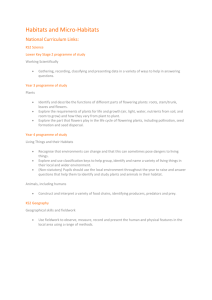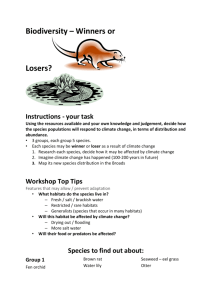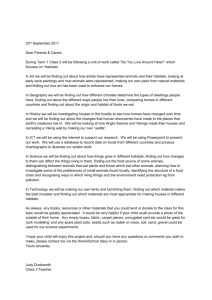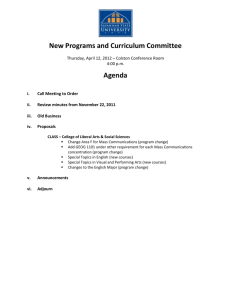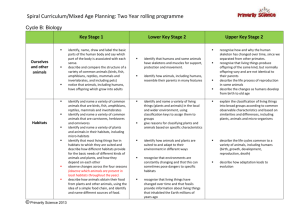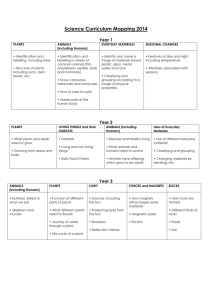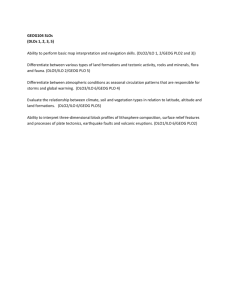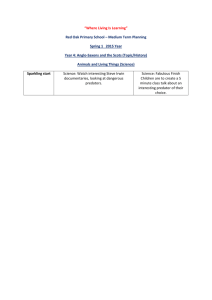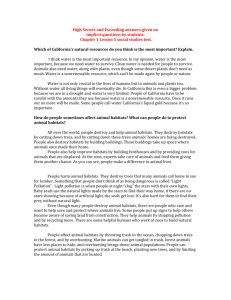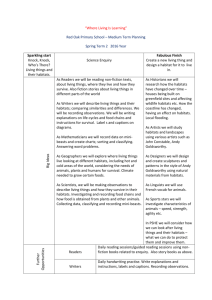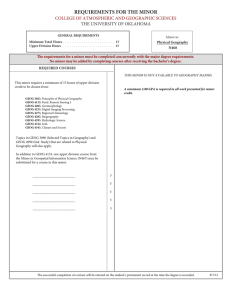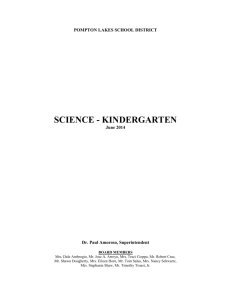Year 2 Foxes
advertisement
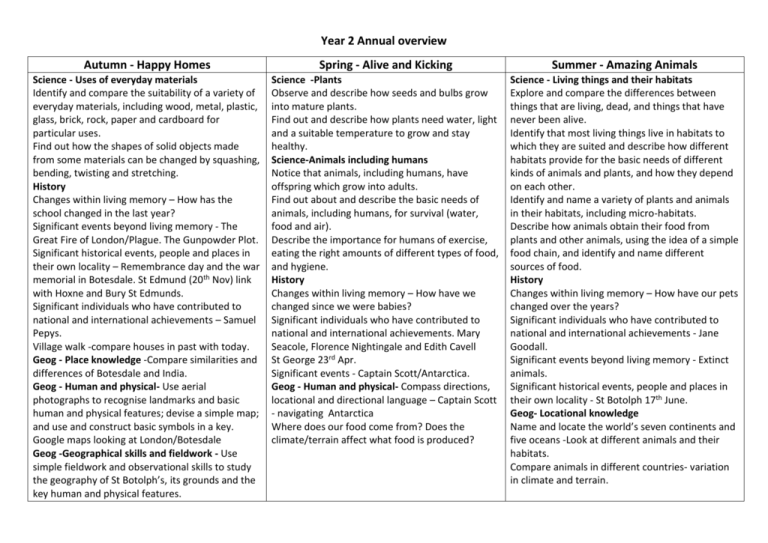
Year 2 Annual overview Autumn - Happy Homes Spring - Alive and Kicking Summer - Amazing Animals Science - Uses of everyday materials Identify and compare the suitability of a variety of everyday materials, including wood, metal, plastic, glass, brick, rock, paper and cardboard for particular uses. Find out how the shapes of solid objects made from some materials can be changed by squashing, bending, twisting and stretching. History Changes within living memory – How has the school changed in the last year? Significant events beyond living memory - The Great Fire of London/Plague. The Gunpowder Plot. Significant historical events, people and places in their own locality – Remembrance day and the war memorial in Botesdale. St Edmund (20th Nov) link with Hoxne and Bury St Edmunds. Significant individuals who have contributed to national and international achievements – Samuel Pepys. Village walk -compare houses in past with today. Geog - Place knowledge -Compare similarities and differences of Botesdale and India. Geog - Human and physical- Use aerial photographs to recognise landmarks and basic human and physical features; devise a simple map; and use and construct basic symbols in a key. Google maps looking at London/Botesdale Geog -Geographical skills and fieldwork - Use simple fieldwork and observational skills to study the geography of St Botolph’s, its grounds and the key human and physical features. Science -Plants Observe and describe how seeds and bulbs grow into mature plants. Find out and describe how plants need water, light and a suitable temperature to grow and stay healthy. Science-Animals including humans Notice that animals, including humans, have offspring which grow into adults. Find out about and describe the basic needs of animals, including humans, for survival (water, food and air). Describe the importance for humans of exercise, eating the right amounts of different types of food, and hygiene. History Changes within living memory – How have we changed since we were babies? Significant individuals who have contributed to national and international achievements. Mary Seacole, Florence Nightingale and Edith Cavell St George 23rd Apr. Significant events - Captain Scott/Antarctica. Geog - Human and physical- Compass directions, locational and directional language – Captain Scott - navigating Antarctica Where does our food come from? Does the climate/terrain affect what food is produced? Science - Living things and their habitats Explore and compare the differences between things that are living, dead, and things that have never been alive. Identify that most living things live in habitats to which they are suited and describe how different habitats provide for the basic needs of different kinds of animals and plants, and how they depend on each other. Identify and name a variety of plants and animals in their habitats, including micro-habitats. Describe how animals obtain their food from plants and other animals, using the idea of a simple food chain, and identify and name different sources of food. History Changes within living memory – How have our pets changed over the years? Significant individuals who have contributed to national and international achievements - Jane Goodall. Significant events beyond living memory - Extinct animals. Significant historical events, people and places in their own locality - St Botolph 17th June. Geog- Locational knowledge Name and locate the world’s seven continents and five oceans -Look at different animals and their habitats. Compare animals in different countries- variation in climate and terrain.
